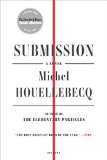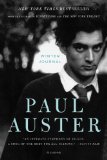Summary | Excerpt | Reviews | Beyond the book | Read-Alikes | Genres & Themes | Author Bio

A Memoir
by Salman RushdieHow do a writer and his family live with the threat of murder for more than nine years? How does he go on working? How does he fall in and out of love? How does despair shape his thoughts and actions, how and why does he stumble, how does he learn to fight back? In this remarkable memoir Rushdie tells that story for the first time; the story of one of the crucial battles, in our time, for freedom of speech.
On February 14, 1989, Valentine's Day, Salman Rushdie was telephoned by a BBC journalist and told that he had been "sentenced to death" by the Ayatollah Khomeini. For the first time he heard the word fatwa. His crime? To have written a novel called The Satanic Verses, which was accused of being "against Islam, the Prophet and the Quran."
So begins the extraordinary story of how a writer was forced underground, moving from house to house, with the constant presence of an armed police protection team. He was asked to choose an alias that the police could call him by. He thought of writers he loved and combinations of their names; then it came to him: Conrad and Chekhov - Joseph Anton.
How do a writer and his family live with the threat of murder for more than nine years? How does he go on working? How does he fall in and out of love? How does despair shape his thoughts and actions, how and why does he stumble, how does he learn to fight back? In this remarkable memoir Rushdie tells that story for the first time; the story of one of the crucial battles, in our time, for freedom of speech. He talks about the sometimes grim, sometimes comic realities of living with armed policemen, and of the close bonds he formed with his protectors; of his struggle for support and understanding from governments, intelligence chiefs, publishers, journalists, and fellow writers; and of how he regained his freedom.
It is a book of exceptional frankness and honesty, compelling, provocative, moving, and of vital importance. Because what happened to Salman Rushdie was the first act of a drama that is still unfolding somewhere in the world every day.
Rushdie's memoir puts me in the position of greatly admiring the life but lamenting its literary representation. I couldn't put Joseph Anton down, despite all of the ways it let me down. This is a deeply flawed memoir by someone with a fascinating and immensely important story to tell. I recommend it with many qualifications....
One cannot help but wonder what Rushdie's work would look like had the fatwa not pushed him to straight, literal chronology of one detail plodding after another, had he not partly renounced his weapon of choice to shape the terms in which we regard the fatwa, had he evinced a bit more self-consciousness about his own literary reaction to political persecution...continued
Full Review
(1758 words)
This review is available to non-members for a limited time. For full access,
become a member today.
(Reviewed by Amy Reading).
Before there was the fatwa, there were protests, bans, and deaths. The first inkling of controversy came just before the book's publication, when an Indian journalist broke the publishing embargo on writing about a book before it is available for sale. Madhu Jain's article, "An Unequivocal Attack on Religious Fundamentalism," was published in the magazine India Today in September 1988, and three weeks later The Satanic Verses was banned in India, Rushdie's homeland. Three days after that, he received his first death threat. Jain has recently responded to Rushdie's accusation that her review was "the match that lit the fire."
Not long after being passed over for the Booker Prize that fall, which went to Peter Carey's ...
This "beyond the book" feature is available to non-members for a limited time. Join today for full access.

If you liked Joseph Anton, try these:

by Michel Houellebecq
Published 2016
Michel Houellebecq's new book may be satirical and melancholic, but it is also hilarious, a comic masterpiece by one of France's great novelists.

by Paul Auster
Published 2013
Facing his sixty-third winter, internationally acclaimed novelist Paul Auster sits down to write a history of his body and its sensations - both pleasurable and painful.
Our wisdom comes from our experience, and our experience comes from our foolishness
Click Here to find out who said this, as well as discovering other famous literary quotes!